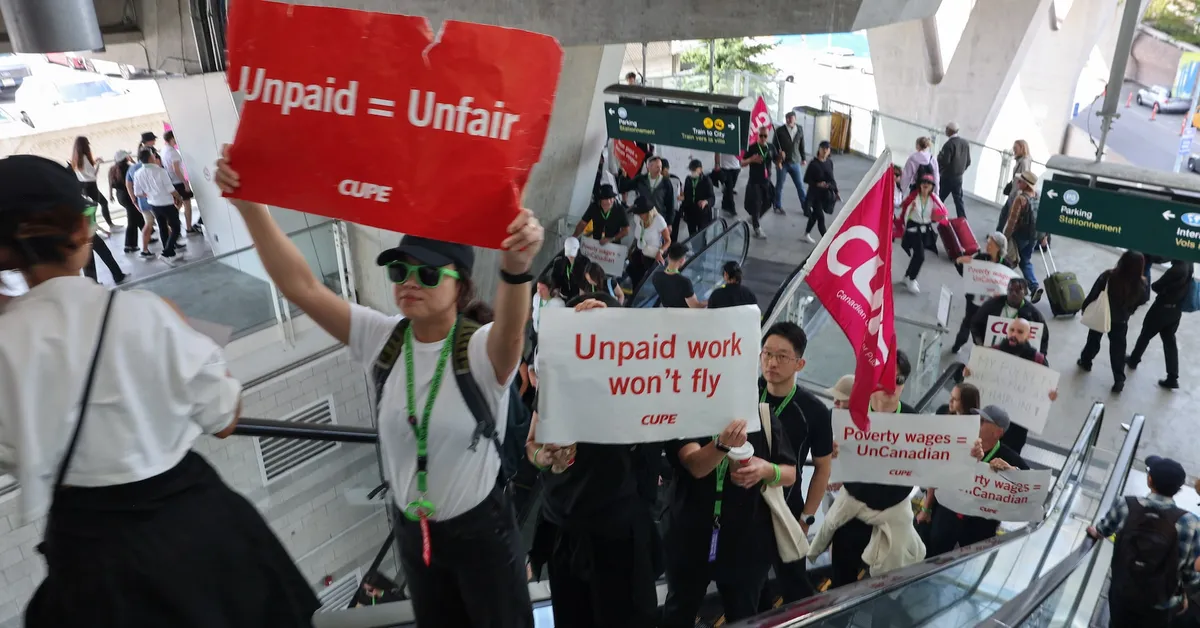
The ongoing strike involving Air Canada, which typically serves 130,000 passengers daily and is a member of the global Star Alliance, has created a significant disruption in airline operations. The airline had initially planned to resume its services on Sunday evening following a decision by the labor relations board that mandated the union to return to work and engage in binding arbitration. However, the union's refusal to comply has led to a rare confrontation with the Canadian government, which had requested the back-to-work order.
The Canadian Union of Public Employees (CUPE), representing approximately 10,000 cabin crew members, has been advocating for a negotiated resolution rather than arbitration. The union argues that binding arbitration would alleviate the pressure on Air Canada while ensuring fair treatment for its members. The flight attendants are striking primarily for improved wages and compensation for ground work, such as boarding passengers. Currently, they are only compensated when the planes are in motion, which has garnered vocal support from the Canadian public on social media platforms.
In response to the union's rejection, Air Canada announced a postponement of its plans to restart operations from Sunday until Monday evening. The airline has characterized the union's actions as an illegal defiance of the labor board's order. The Canadian government's potential strategies to resolve the situation now include seeking court enforcement of the return-to-work order and pursuing an expedited hearing. Additionally, the minority government could consider legislating a solution, but this would require support from political opponents and must pass through both houses of parliament, currently on recess until September 15.
Experts, such as Dionne Pohler, a professor at Cornell University's Industrial and Labor Relations School, suggest that the government may be hesitant to adopt a heavy-handed approach. The Supreme Court of Canada has historically ruled that governments must exercise caution when limiting the right to strike, even for public sector workers deemed essential. Another viable avenue could be to foster negotiations between the two parties.
On Saturday, Prime Minister Mark Carney's Liberal government sought to terminate the strike by directing the Canada Industrial Relations Board (CIRB) to impose binding arbitration. Although the CIRB issued the order at Air Canada's request, the unionized flight attendants firmly opposed it. Historically, government interventions have been rare, especially when unions defy such orders. The CUPE has deemed its rejection of the CIRB's decision as an unusual response to a situation governed by Section 107 rules invoked by the government.
Travelers at Toronto Pearson International Airport expressed confusion and frustration over the uncertainty surrounding their flights during the strike. Francesca Tondini, a 50-year-old traveler from Italy, publicly supported the striking attendants, despite her own predicament of not knowing when she could return home. "They are right," she stated with a smile, acknowledging the attendants' cause.
The core of the dispute between Air Canada and its cabin crews revolves around the compensation structure for flight attendants. Traditionally, airlines, including Air Canada, have compensated attendants only while planes are in motion. In recent contract negotiations, flight attendants across North America have sought more equitable pay, including compensation for various tasks such as boarding passengers. Notably, American Airlines has begun compensating its flight attendants for certain hours worked between flights, a change that has been echoed by United Airlines' cabin crews, who also rejected a tentative contract last month.
As the situation unfolds, the implications of this strike extend beyond just airline operations, reflecting broader issues of labor rights and compensation in the aviation industry.